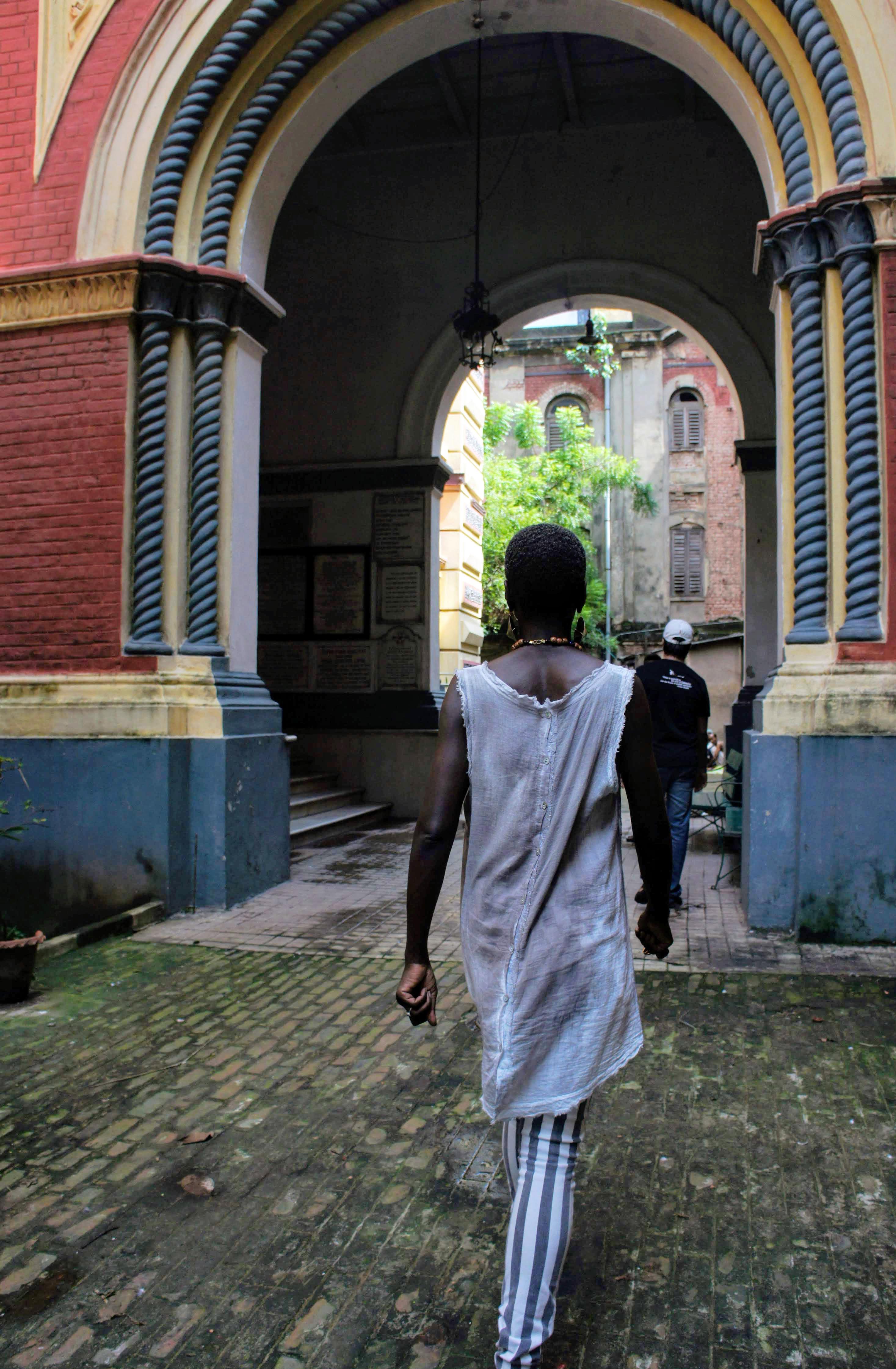
16 minute read
COVER STORY Gugulethu Moyo: In pursuit of justice
COVER STORY
Gugulethu MOYO
In pursuit of justice
By Mala Blomquist
One might question how a girl that grew up in Zimbabwe, earned a law degree from Oxford and married a diplomat, ended up in Tucson, becoming the executive director of the Jewish History Museum and Holocaust History Center.
But the answers unfold when you hear Gugulethu “Gugu” Moyo share her incredible journey, and you understand that she’s right where she is meant to be. But it has not been an easy path. She is a genocide survivor, advocate for human rights, defender of media freedom, writer, mother, proud Jew, and now the first Jew of color to lead a major Jewish museum in the United States.
Gugu does note that there is a familiarity with the vastness of Tucson’s landscape and the African savanna of her homeland. She loves the desert and jokes that sometimes she imagines it’s what being on another planet might look like.
FOUNDATION OF STRENGTH When Gugu was six years old, she lived with her grandmother, a teacher, and two aunts in a residential area in Bulawayo, Zimbabwe, in southern Africa.
Political tensions were rising in the area in the months following Zimbabwe’s independence from the United Kingdom. Two liberation armies – Zimbabwe People’s Revolutionary Army and the Zimbabwe African National Liberation Army – both had set up camps in the suburb of Entumbane in Bulawayo as part of the demobilization exercise in the newly independent republic.
Gugu’s home was located across the road from these encampments.
In early 1981, a fight broke out between these two factions. When the gunfire began, the family fled their home in fear.
“I remember being afraid and having to sort of crouch and move close to the ground. We had to run through a sports field because where we lived was near a school,” says Gugu. “I remember the sound of gunfire, but also red lights flying above you – bullets in the night sky.”
The family ran through the city for about 10 kilometers until they reached the safety of a relative’s home. They went on to stay with various relatives until the violence paused and they could return home.
“When we went back home, the walls were bulletridden. Someone had gone through the place and some valuables were gone,” says Gugu.
Gugu remembers that once they got back, having to be quiet and hide within the home, sometimes under the bed, because soldiers were continually looking for people they referred to as “dissidents.”
“A few months later (after we got home), we had to flee because the shooting started all over again. The fighting that was happening in the urban areas of Bulawayo.”
The second time the family returned home, it was like déjà vu – bullet holes in the walls and the home had once again been ransacked.
“I just remember the feeling and sense of helplessness,” says Gugu. “There was nothing ever done to address any of this. It was just an experience that people in this particular part of Zimbabwe had. In fact, many people deny that this happened.”
These “Entumbane clashes” happened years before the Gukurahundi, a series of massacres of Ndebele civilians carried out by the Zimbabwe National Army, whose Fifth Brigade was trained by the North Korean military. Although there are different estimates, the consensus is that more than 20,000 people were killed from early 1983 to late 1987. The International Association of Genocide Scholars has classified these massacres as genocide.
“What did happen in the eighties was that there was a commission of inquiry established by the government at the time,” says Gugu. “But that report was never made public, I don’t know who’s read it, but it was never published.”
The Catholic Commission for Justice and Peace in Zimbabwe and other human rights organizations have done reports on the atrocities. Still, there have been many roadblocks to obtaining the truth about the Zimbabwe National Army’s genocidal campaign against the Ndebele people. “The obstacle is that the person Gugu is seen in 2003 holding a special edition of the newspaper where she worked, which was banned by Zimbabwe’s government who is said to have orchestrated the campaign is Zimbabwe’s president right now,” says Gugu. “And many of the military leaders who were involved are still in the army.”
The murders took place across a fairly large part of Zimbabwe, and since there’s no formal documentation on who was killed and where, not all the victims’ bodies have been accounted for. There are mass graves in many places, and many have not been able to have proper funerals for their lost loved ones.
“As a nation of Zimbabwe, we have not yet dealt with or addressed what happened,” says Gugu. “It makes a lot of sense that the people who are in power don’t want any proper investigation of this because there’s no real statute of limitation on murder, right?”
PURSUING JUSTICE
Gugu earned her first Bachelor of Law degree from the University of Zimbabwe in 1996. She also holds a Bachelor of Civil Law degree from the University of Oxford in the United Kingdom. For her, going to law school was about the pursuit of justice.
“I had a very idealistic impression of what lawyers did and what the practice of law was,” says Gugu. “I went into law because I think lawyers working within the legal
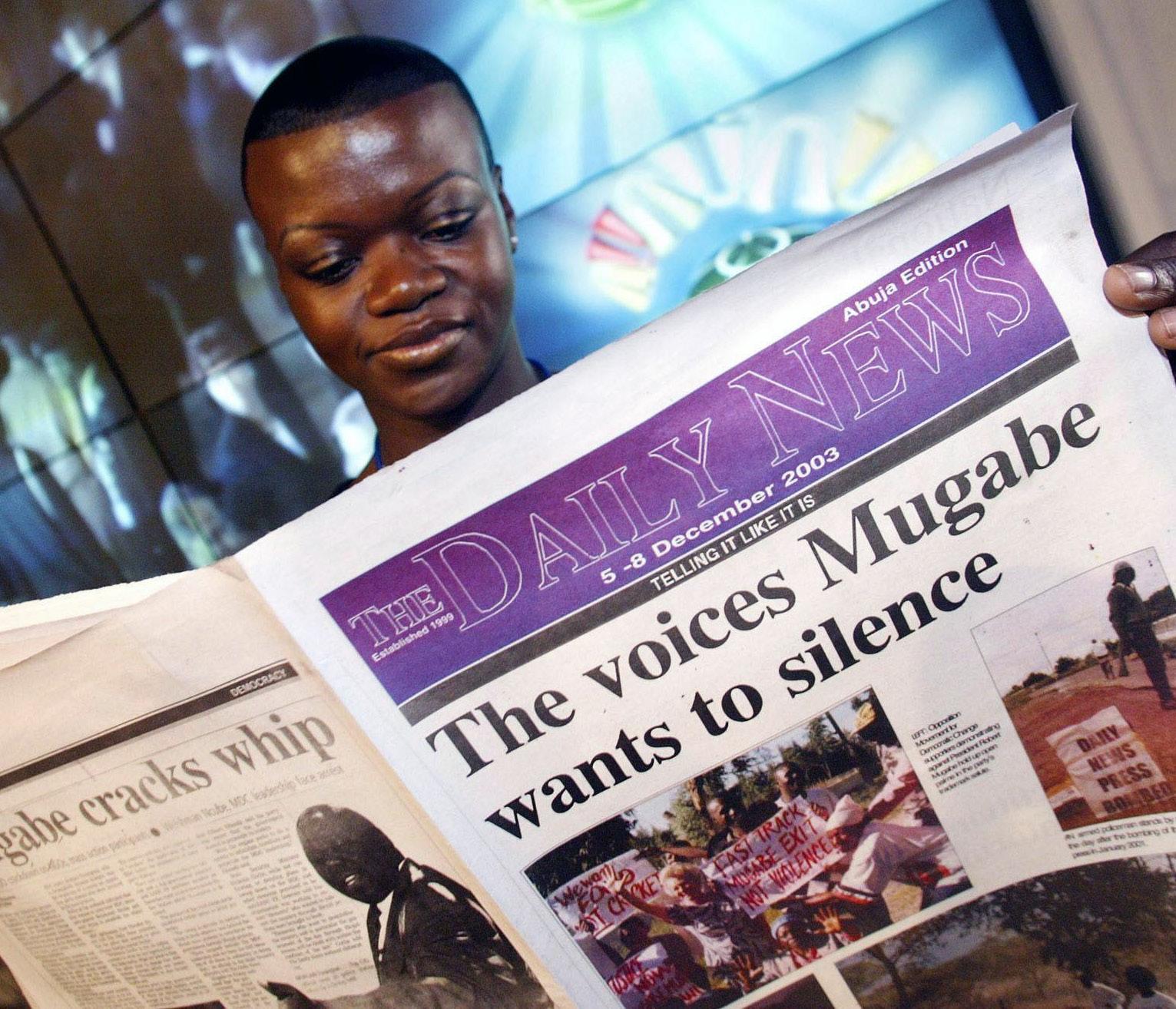
system have a great deal of influence to how people are treated systematically. How rights are protected – or not.”
Gugu was hired to be in-house legal counsel at Associated Newspapers of Zimbabwe, the publisher of the Daily News, Zimbabwe’s largest daily newspaper that had a readership of almost a million people.
The paper needed an in-house attorney because the laws that regulated media and journalism in Zimbabwe were intended to interfere with freedom of the press. Journalists were often intimidated, harassed, or charged with crimes of falsehood.
“It was a criminal offense to publish false information,”
B ABWE Z I M OXFORD A MIBIA N
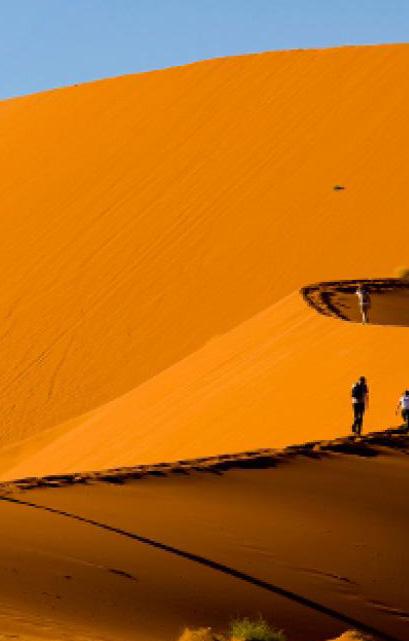
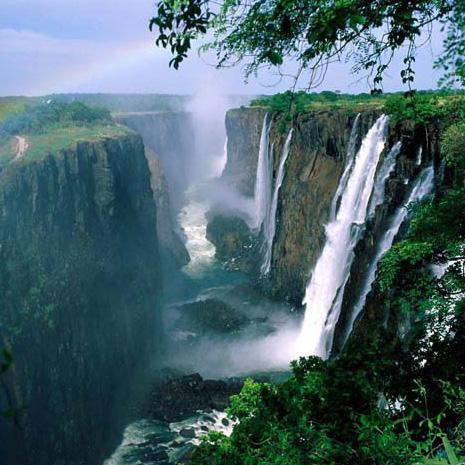
GUGU's PATH
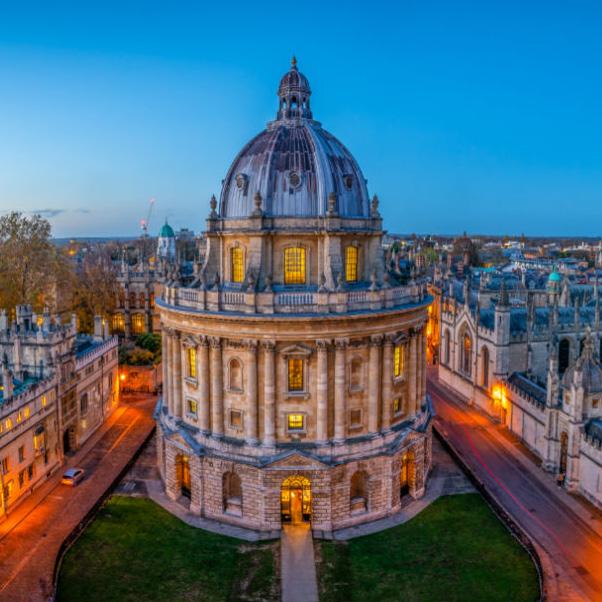
says Gugu. “Journalists make mistakes all the time, but can you imagine operating in an environment in which you could go to jail because of your mistakes?”
The Zimbabwean government would offer incentives to people to put out false information to entrap journalists. They also required newspaper publishers to obtain a license under the Access to Information and Protection of Privacy Act. These licenses could be withheld or revoked by the Zimbabwean government based on the editorial stance of the publication. It was clear from the start that this legislation had been created to restrict media freedom.
Gugu was always defending lawsuits against the paper. “Politicians would sue the newspaper, kind of routinely, for defamation,” she says. Fighting these continual lawsuits became a heavy financial burden on the paper. “They would sue the journalists or the publisher themselves for ridiculous amounts of money.” At that time, there were very few limits on the damages someone could claim.
There was so much legal and physical risk involved with publishing in Zimbabwe. “Working for this publication was really an act of courage,” says Gugu.
Independent newsstand vendors that carried the Daily News would be attacked on the street and have their newspapers stolen. The paper also had their offices bombed – twice. Throughout the time that Gugu worked there, everyone on the staff had been arrested or imprisoned at one point or another, herself included. (Gugu walked into a nightmare when she attempted to secure the release of a photographer that had been arrested covering Zimbabwe’s two-day national strike. She was repeatedly beaten and imprisoned for two nights, with no access to legal or medical help. Read The Guardian’s coverage of the incident here.) “I went into this environment, not knowing what was going to happen, but I became increasingly committed to press freedom,” says Gugu. “The reason they were doing this is that we had so much power as the press. They wanted to keep the truth away from people. What we were doing to defend press freedom was incredibly important to our democracy.”
The final straw came when the paper challenged the constitutionality of specific legislation. The Supreme Court of Zimbabwe ( which was the equivalent of the constitutional court) did not consider whether the law was in compliance with the press freedom guaranteed in the constitution. Instead, it told the paper to comply with the law first and come back to court afterward.
“So we should have complied with the law before we challenged it? That was an unprecedented decision,” says Gugu. “The outcome was not what anybody had expected, and it drew a lot of criticism from the Zimbabwe legal community and legal communities and press freedom activists around the world.”
After the decision came out, the police shut down the Daily News at gunpoint. That was in September 2003.
A court order stated that the paper could re-open in December of that year, but when the paper prepared an eight-page edition for release, riot police arrived to shut down their printing press and blockade the building. Four top members of the Daily News staff were charged with illegal attempts to publish but were acquitted in
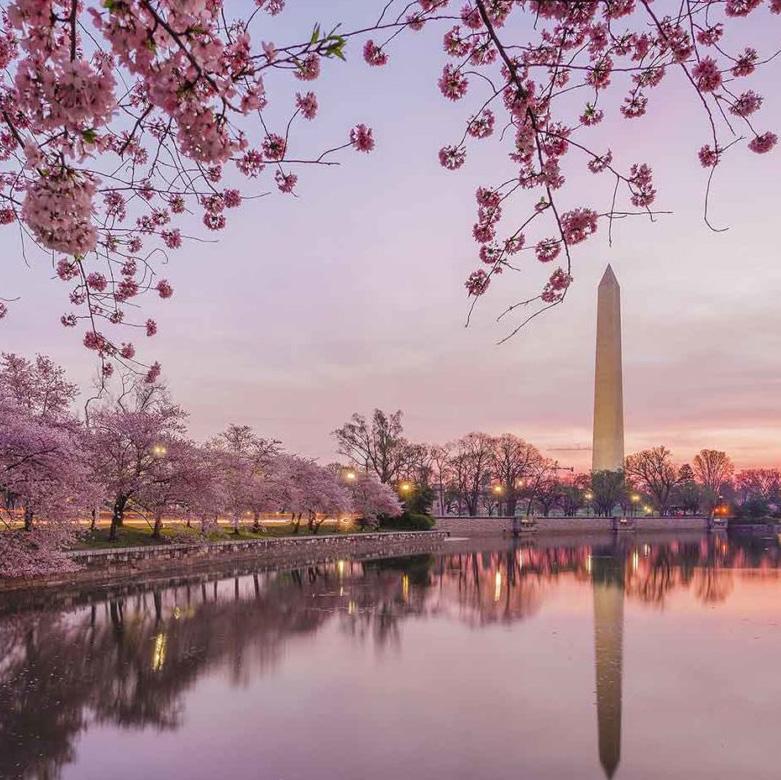
S H I NGTON, DC
W A LONDON TUCSON , AZ
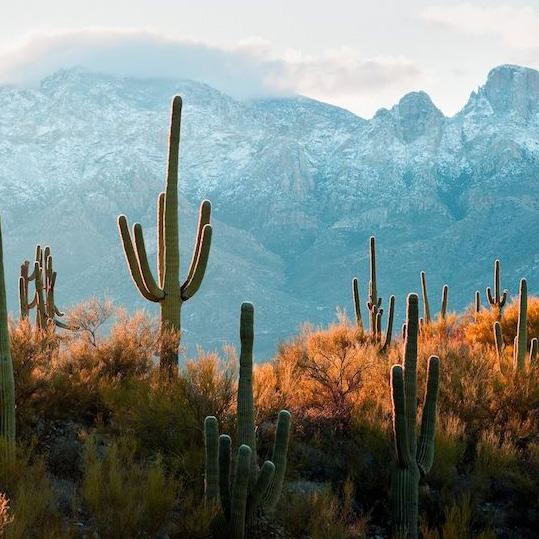
September 2004.
MAKING A DIFFERENCE After Gugu left Associated Newspapers of Zimbabwe, she worked in Namibia for a bit. In 2004, she was recruited by the International Bar Association’s Human Rights Institute to do advocacy work on the rule of law in Zimbabwe and elsewhere in the region. With this position came a relocation to London.
While in London, Gugu was intrigued when she saw that George Soros’ Open Society Foundation was looking to set up a legal aid organization to protect press freedom and respond to situations where the law is used to intimidate journalists.
“Obviously, I was particularly experienced in ways in which legal pressure can be applied to interfere with press freedom and also the needs of those defending against these cases in difficult jurisdictions,” says Gugu. “I understood a great deal about that kind of operating environment. and what we could do.”
She applied for the position and was hired as executive director for the Media Legal Defence Initiative in June 2009. The company was established as a nonprofit company in June 2008 and registered as an independent charitable organization in 2009. It was rebranded to Media Defence in 2020.
Setting up a legal aid organization was incredibly ambitious work. The Open Society Foundation started it off, but they were not going to support it financially for the long term. Gugu worked to raise funds from donors in both America and Europe. Some of these donors include the John S. and James L. Knight Foundation, the Adessium Foundation, Google and the MacArthur Foundation.
But Gugu’s work was not the only challenge in her life. She and her Jewish partner, Joshua Polacheck, a diplomat, were navigating a long-distance relationship.
“I lived in London, and he was posted in Lebanon and then Pakistan during this period,” says Gugu. “We met in Zimbabwe; it was his first overseas assignment. I was working there at the time – I left Zimbabwe before he did.”
The couple was married in New York on Aug. 25, 2009. But right before they entered the courthouse to exchange their vows, Gugu’s phone rang.
“It was from somebody in Rwanda who was defending a journalist that had been incarcerated, and they needed funds to pay a lawyer. It was an emergency,” says Gugu. “I guess somebody else might have ignored that phone call. But I knew what that kind of experience was like for people, having lived in an environment like that.”
She and Joshua did not want to live apart as a married couple, and they were trying to figure out who was going to move and quit their job.
“Eventually, I moved to Washington, D.C., and that’s how I came to be living in the United States of America,” says Gugu.

JOURNEY TOWARDS JUDAISM When Gugu got to D.C., she formally started her path to conversion, but her connection to Judaism began many years earlier.
“Working with lawyers, particularly South African lawyers, sparked my interest in Judaism,” says Gugu. “These South African lawyers, who, in that country, would have been classified as white, and so one would have expected them to go along with the apartheid system as most white people did at the time. But it was striking to me that these Jewish lawyers were often activists against apartheid, and played significant roles.”
When she set up the Media Legal Defence Initiative, she also met icons of the human rights movement, who also were Jewish. One of these individuals was Aryeh Neier. Aryeh was president of the Open Society Institute from 1993 until 2012. He also co-founded Human Rights Watch and was the national director of the American Civil Liberties Union.
She was curious about the ethics behind the faith, and as she learned and read more about Judaism, she came to a realization. “This is pretty much my tribe, you know? It was an organic sort of thing, a homecoming in terms of finding a community of people who share the same values about the world and ethics that I subscribe to.”
Like most Zimbabweans, she grew up in a Christian environment, and attended a private Catholic school.
“By the time I was exploring Judaism, I wasn’t seeking God because that’s not something I was in need of,” says Gugu. “It was about having a way of life that I thought was one that I wanted to lead. One of the things I particularly like about Judaism is that we examine and ask questions in order to get the truth, so agreement isn’t a requirement in Judaism.
“The most important thing for me is the requirement to act and how much attention Jewish people devote to thinking about how we must act in the world, and the many ways that you can be a better Jewish person. That is something that appeals to me about Judaism.”
FINDING A HOME IN THE DESERT
In April of 2019, Gugu, Joshua and their young daughter decided to move to Tucson to be closer to her father-in-law, Dr. John Polacheck, z”l, who was ill. John had served with Indian Health Services in New Mexico, Alaska, Nevada and Arizona before settling in Tucson in 1992, when Joshua was in middle school.
She remembers dropping their daughter off at preschool one day and talking to parents since they were “shul shopping.” One of the people they met was Bryan Solomon “Sol” Davis, the Jewish History Museum and Holocaust History Center’s executive director.
He mentioned that the museum was currently looking for an operations director. They had only been in Tucson for about a month and Gugu applied for the job. She got that position and then officially became executive director in Jan. 2021, after Sol left to become the director at the Jewish Museum of Maryland.
No one was probably happier for Gugu’s appointment as director of operations in July 2019 than her father-inlaw. John had been a volunteer involved in the restoration of the museum back when it was known as the Stone Avenue Synagogue. Built in 1910, it became the first Jewish house of worship in the Arizona Territory. After John died in November 2019, his memorial service was held at the museum.
Aside from the building’s rich history, the museum is also Arizona’s only Holocaust history center.
Gugu comments on the importance of the museum’s location, being so close to the border where migration is constant and immigrants escaping all kinds of situations end up settling in Southern Arizona. The concept of diaspora is something that she is very familiar with and has lived herself.
“Because most of the collection at the museum is oral history, I intend to just keep telling these stories in more expansive and richer ways,” says Gugu. “What Jewish life is, and what it means to live a Jewish life in this particular part of the country.”
She shares that the museum has done a significant amount of work educating people about anti-Semitism, including school children that make up the museum’s largest audience.
Since the museum is also a Holocaust history center, Gugu says that they anticipated the upcoming mandate added to the state education standards where teachers will need to include lessons on the Holocaust and other genocides.
They are working with the Holocaust Education Task Force and also with a small group of educators to create lesson plans, specifically for students in Arizona, that will not only teach Holocaust history but the history of several other genocides. Gugu also wants to include contemporary human rights issues and personal accounts from individual survivors.
“When people can meet survivors and speak to them about their experiences, it’s a really powerful way of teaching this difficult history,” says Gugu. “The Holocaust was something that happened in Europe, but some of the people who were victims survived and ended up here.
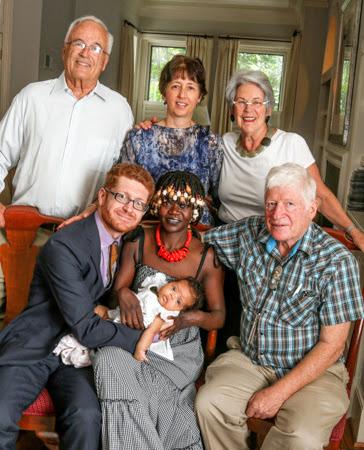
Left: With family at daughter, Thurza's, brit bat (welcoming ceremony). Top row from left, Michael Usher, Audrey Kremer, Marion Usher; bottom row from left, Joshua Polacheck, Gugu holding Thurza and John Polacheck, z"l Thurza's grandfather.
~GUGULETHU MOYO
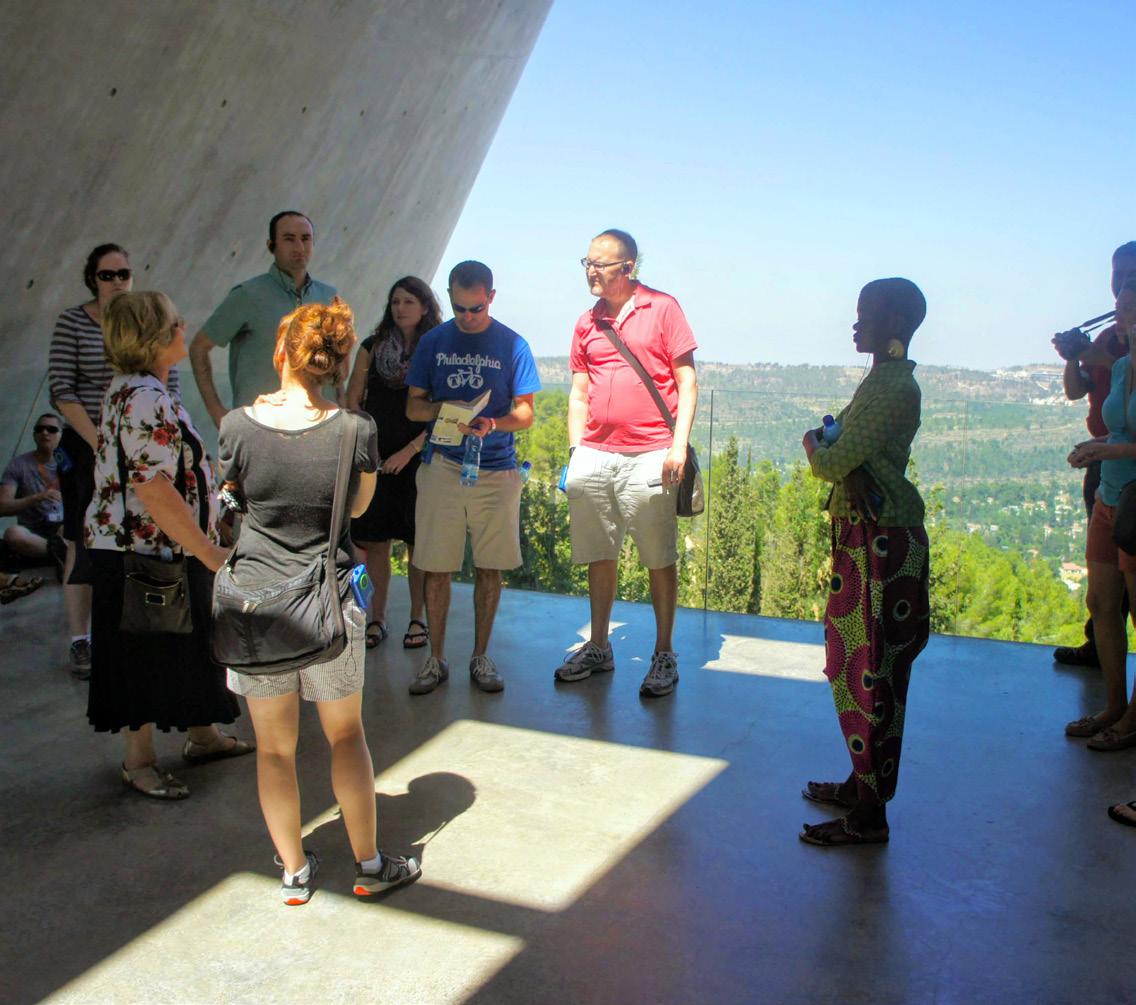
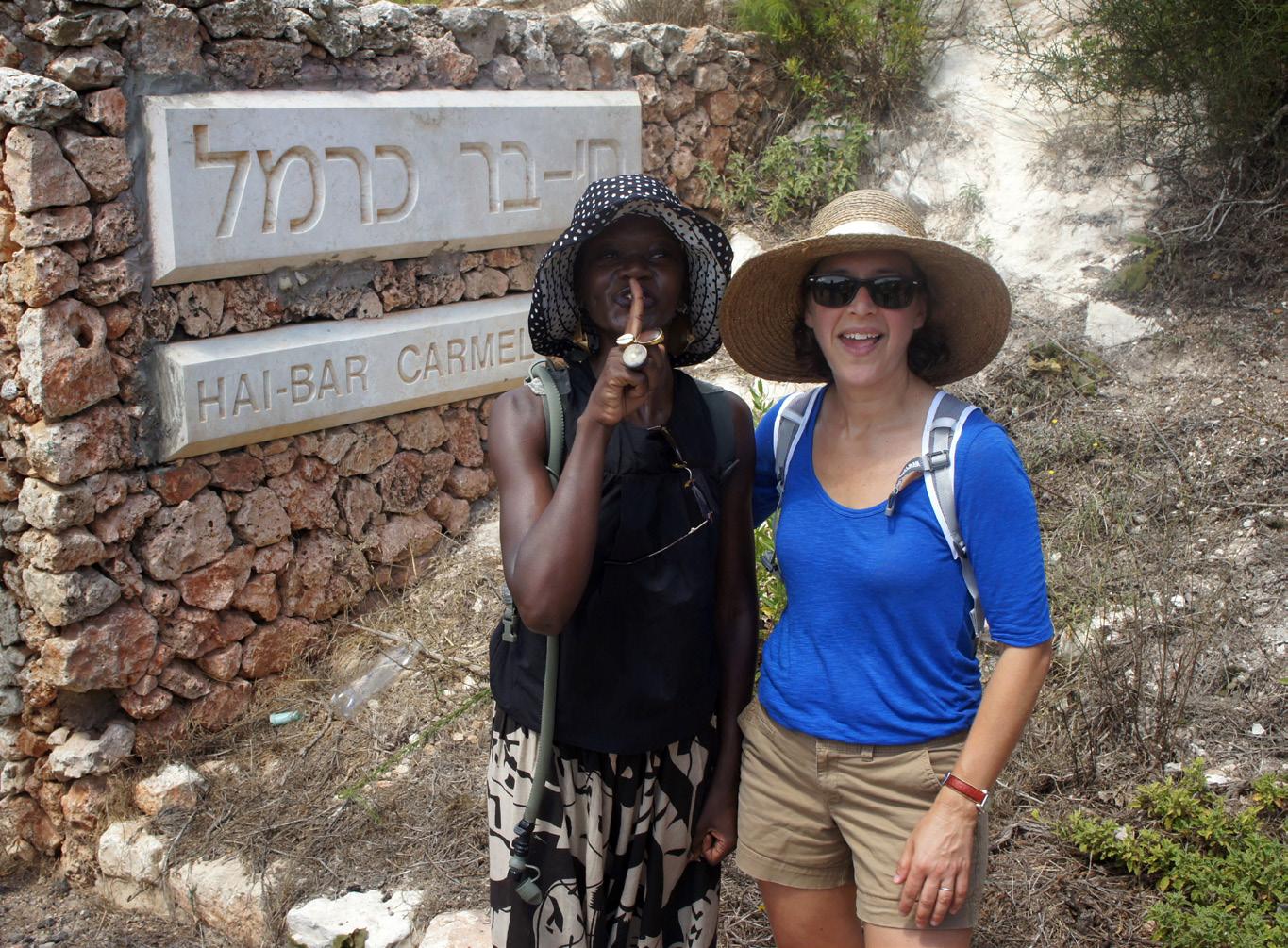
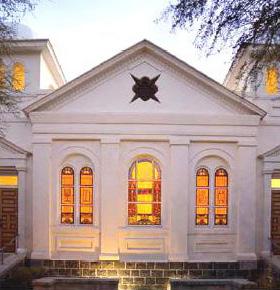
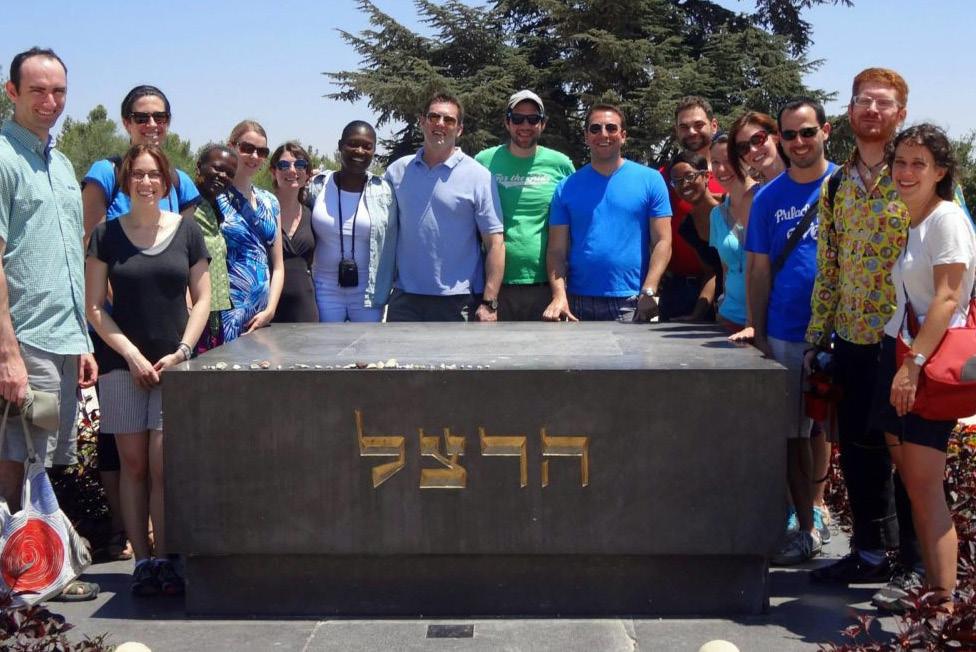
They have carried on their life and have carried those stories with them and into their lives here. That is also true of other genocides.”
She continues, “The Jewish History Museum tells complex stories in nuanced ways to help inform all of us about history. History that we don’t understand or don’t know. I also think it’s a place to reflect, share stories with others and learn from that history – what we can do better and how we can act in the future.”
Clockwise, above: Gugulethu Moyo, fourth from left, at Yad Vashem on a Sixth & I (their synagogue in Washington, D.C.) congregational trip to Israel in 2013. Rabbi Shira Stutman, senior rabbi at Sixth & I synagogue, is at far right; Gugu’s husband, Joshua Polacheck, is next to Stutman; the Jewish History Museum and Holocaust History Center (courtesy Jewish History Museum); touring Yad Vashem; Gugu at Carmel Hai-Bar Nature Reserve in Haifa, Israel
with Rabbi Stutman. PHOTOS COURTESY GUGULETHU MOYO
Entering the Magen David Synagogue, Kolkata, India
